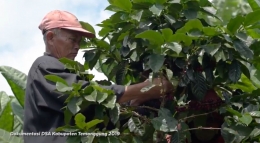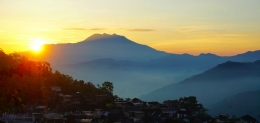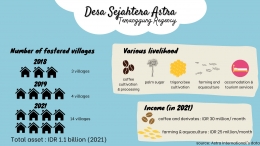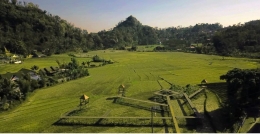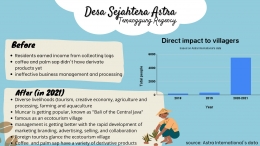Running a company nowadays is not only putting profit as the number one target, but has to bring more added value to the environment and the social. This concept is increasingly intensified by global investors and countries around the world, to tackle the climate crisis and achieve the Sustainable Development Goals (SDGs) in 2030.
While, some companies attempt to make their business to be more friendly environment and bring social impact, most of them still consider as part of the corporate social responsibility (CSR), which still bring impact either to environment or social.
For a company, supporting the local community / village to be an ecotourism village can be a challenging but meaningful for stakeholders. Indonesia’s conglomerate, PT Astra International Tbk (Astra), for instance, has started to upgrade the economic scale and social impact to villages across Indonesia since 2018.
The program called “Desa Sejahtera Astra” (in English : Astra prosperous village), is part of the firm’s CSR (Corporate Social Responsibility) activities every year. Currently, it has supported 930 villages in 34 provinces across the archipelago, with four pronged focuses: coffee cluster, processed agriculture and commodities cluster, marine and captured fisheries cluster, and creative & culture cluster.
One of the assisted villages is Muncar Village, which is located at the northern tip of Temanggung Regency, or 25 kilometers from Temanggung, a small city in Central Java. With an area of about 943 hectares, the village is situated on a plateau of three mountains – Sumbing, Sindoro, and Prau.
In 2018, Jardine Cycle & Carriage-backed Astra together with a local youth activator, Sofi Ahmad, began to develop three villages in Temanggung, mapping up the potential and building the master plan to improve the village. It now has 14 villages under Ahmad and Astra’s supervision.
Muncar is known to be a tobacco producer, robusta coffee cultivation, and other agriculture commodities. However, coffee was just a runaway crop. Tobacco was the flagship crop for farmers, because the price per kilogram (kg) is as high as a gram of gold.
However, growing and selling tobacco didn’t make the farmers rich. Many farmers were in debt by tobacco buyers. Another problem, Ahmad figured, was the unconsolidated farmers, not transparent and no inventory management. From the environmental perspective, tobacco is a monoculture crop that can damage the soil, and is unable to support farmers’ livelihoods.
Ahmad found that coffee cultivation becomes the solution. He had to convince the local communities and farmers that coffee will bring more added value for the villagers if they can process it in the right way. At the same time, he introduced the 'farmpreneurship' concept, which required the farmers to work together, have the the risk management and inventory, and transparent.
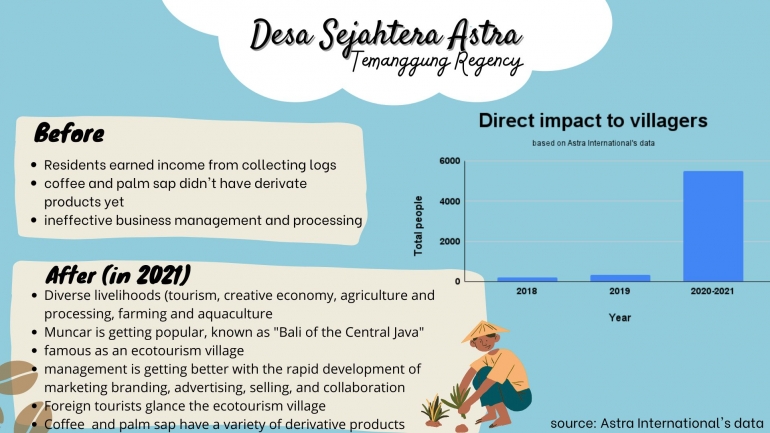
“It’s quite challenging to convince the farmers at the beginning, but after we explained with the local wisdom, they could accept it. We emphasize farmers to be adaptive and agile. Those who play alone will fall. We teach them on doing partnership. Although the economic scale is small, but it is sustain. Therefore, the pandemic didn’t give us much impact, because we are solid,” Ahmad explained.
Apart from cultivation, Ahmad also concerned on the importance of coffee processing to increase the selling value for farmers. At this point, Astra facilitates training, education, financing facilities for purchasing the roasting machines and processing equipment, to marketing and promotion.
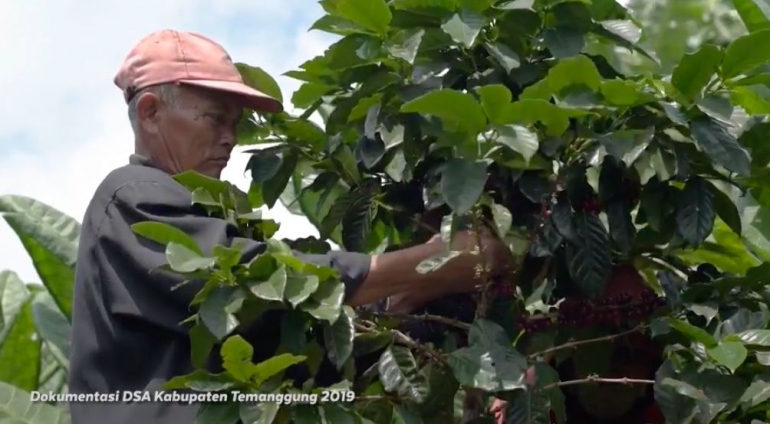
“The company helped us, the farmer groups, who wants to advance coffee harvesting and processing. In the past, farmers were never serious about coffee. We couldn’t even send our children to school. After Astra came, it helped us, both in the economic way and the communication to the local government and other villagers,” said Sutrisno, a farmer chief in Muncar village.
As a result, the income from coffee production increased, from Rp 18,000 (US$ 1.26) per kg of the green bean to Rp 125,000 (US$ 8.77) per kg of the coffee powder.
Besides coffee, Astra also support to develop the agriculture in other Temanggung villages. The firm facilitates training for local women to process and package the palm sugar, guide farmers in trigona bees cultivation. The company also implement the combined farming (the rice fields and the aquaculture) to increase the farmers income.
In 2019, the Muncar village has officially become the ecotourism village, which is known as Muncar Moncer Temanggung (in English : luminous and prosperous). The village self-branded as the Bali of Central Java, as it has wide expanse of rice fields. The village also promotes some natural beauties, such as the Curug Lawe waterfall, and It also promotes the waterfall of Curug Lawe, and the landscape of the sun rising over the mountains and residential on Mbelang Blawong hill.
In terms the infrastructure, Astra built Jembatan Sawah (the bridge over the rice field) for adding the aesthetics of the rice field. Ahmad said, the bridge becomes the creative hub for the local youths, communities, or even tourists to relax, sharing ideas, or just selfie and promote in the social media. At Mbelang Blawong hill, Astra also created a small gazebo for sightseeing the sunrise over the mountains and residential landscape.
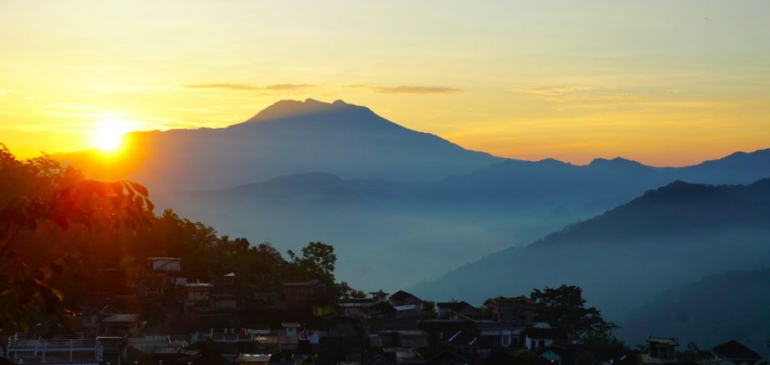
The beauty of natures which enhanced by a simple infrastructure, have helped the villagers to make more income from accommodation and food for tourists.
Labor absorption in Muncar village and other 13 villages, increased from only 20 people in 2018 to 80 people in 2021. Villages income from coffee production was IDR 30 million (USD 2,103) per month. The combined farming and aquaculture was at Rp 25 million (USD 1,754.28) per month in 2021. Moreover, asset valuation for the villages reached IDR 1.1 billion (USD 77,144).
Ecotourism could be an alternative to impact investment
Investing on the ecotourism districts still relative new and unfamiliar among investors. The boroughs usually get grants, either from the government fund, global development fund, or non governance organisations (NGOs).
In Indonesia, only 1,800 villages or 2.2% have become ecotourism villages from a total of 83,381 villages in over 34 provinces across the archipelago in 2021, the Ecotourism Villages Association (Asidewi) recorded.
Ahmad, the hamlet mover argued if Muncar village and others are relatively open to investment, with a balanced portion between the community and investors.
“We open to investment potential, such as profit sharing, whether it be lodging facilities, transportation, swimming pool, or other recreational facilities. However, we also want to be sovereign, without have to selling our own assets,” he added.
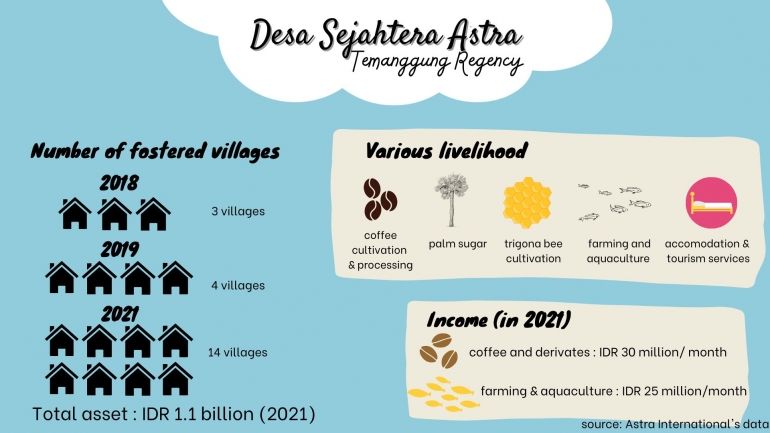
According to the World Tourism Organization (UNWTO), the United Nations Specialized Agency for Tourism, the tourism not only helps to provide jobs creation and reduce poverty, but also contributed to 10% of the world GDP in 2017. It projected 57% of international tourist arrivals in 2030 will be in emerging economies.
Tourism also could reduce 5% of world CO2 emissions, and can be a vehicle for protecting and restoring biodiversity.
"We have committed to support the Sustainable Development Goals in Indonesia, therefore we bring a sustainable social contribution that focuses on entrepreneur empowerment in the village scale," Boy Kelana Soebroto, Head of Corporate Communication at Astra, said.
Baca konten-konten menarik Kompasiana langsung dari smartphone kamu. Follow channel WhatsApp Kompasiana sekarang di sini: https://whatsapp.com/channel/0029VaYjYaL4Spk7WflFYJ2H





